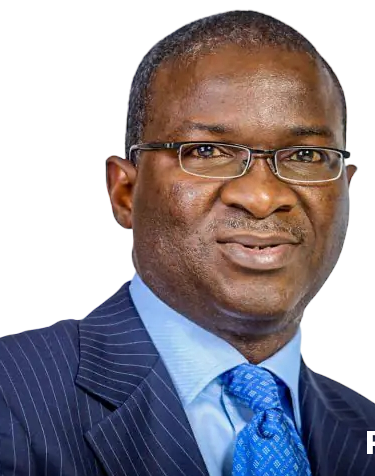Mr. Babatunde Fashola, minister of Works and Housing, made it to President Buhari’s cabinet in
recognition of his ability to show meaningful infrastructure development with resources at his
disposal. He ranks high on the President’s list of trusted personalities in his government, placed
on a strategic ministry where he is to optimise the use of available resources to deliver the
highest possible stocks of public infrastructures.

Prudence and efficiency are two key ingredients in his mandate as virtually all the funds coming
to his ministry for capital projects have to be borrowed in the face of revenue constraints. Every
kobo needs to count particularly in a situation of massive infrastructure gap the nation has
been facing.
Development of public infrastructures has lagged behind rapid growths in population and

businesses in Nigeria for a long time. The duty call to make up for the deficit fell on Fashola,
who was charged with the task of making infrastructural transformation happen in Nigeria
under the Buhari-led administration.
The government’s infrastructure development strategy is to enhance the ease of doing business
in Nigeria. The realization of an exciting business space is expected to spark off economic
growth through investment inflow.
“Fashola has pursued the mandate with a lot of passion in his conviction that Nigeria ranks
among the tops globally in terms of return on investment. According to him, the country’s key
advantage is its very active demand power, which is irresistible to serious investors anywhere in
the world.
His part in the Buhari legacy is therefore to bring about an infrastructure transformation good
enough to spur a new level of investment inflow, creating new jobs, enhancing economic
growth and advance the well-being of the people. A regime of elevated inflow of new
investments held the high hopes of achieving exchange rate stability.
The 8-year minister of works has implemented a grand infrastructure development package in
what he framed “a decade of infrastructure renewal and expansion”. He unveiled a raft of
ambitious projects, some of which are in the multi-billion dollar region to make this happen.
The infrastructure commitments of the government cover more than 10,000 km of road
network, refurbishing of bridges and public infrastructure highways. The records show both a
large number of infrastructure projects embarked upon and the inclusion of giant sized
development works under the Buhari’s government.
The ability to accommodate these projects in the face of fiscal challenges rested on new
borrowing as well as innovation. Fashola has combined borrowing for economic capacity
building with private sector funding initiatives.
He introduced Highway Development Management Initiative under which a number of
highways are concessioned to attract private investments. This enables strategic private sector
interventions through advance tax credits.
Under the initiative, companies and institutional investors are given the opportunity to identify
the infrastructure works of their choice and agree the terms of execution with the ministry of
works. They can make the investment by advancing their tax to government ahead of time.
Community targeted infrastructure development is also part of the government’s strategy in
order to impact people and businesses directly. The idea is to make beneficiary community
involvement in projects the norm in the country.
Tertiary institutions belong to this category where the ministry undertook the construction of
internal road networks in 43 federal tertiary institutions.
The campus infrastructure projects were executed simultaneously across the geographical
spread of the institutions, which has provided uniform standards for educational developments
across the nation.
Project execution was structured to empower students and impact their lives personally.
Students of the institutions, especially those in engineering/vocational related courses were
engaged on the works.
The targeted beneficial impacts were realised – the students gained practical knowledge along
the value chain of project execution and received payment for involvement on the works. This
is in line with the job creation and poverty alleviation programmes of the government.
The ministry’s national housing project followed the same pattern in creating engagement
opportunities for community members. The projects execution have provided opportunities for
both skilled and unskilled workers to be involved and make their contributions in stimulating
economic activities that impact the communities positively.






